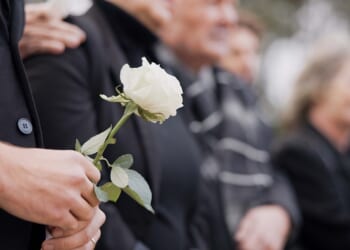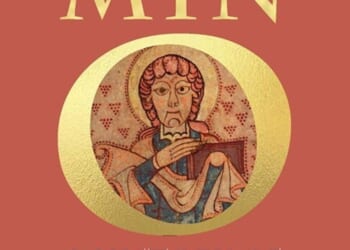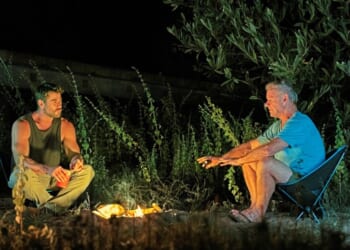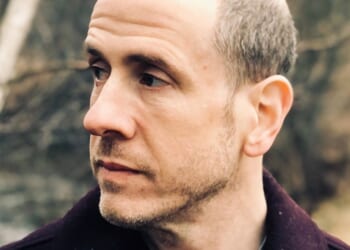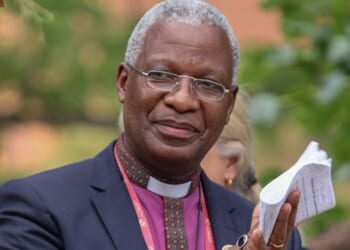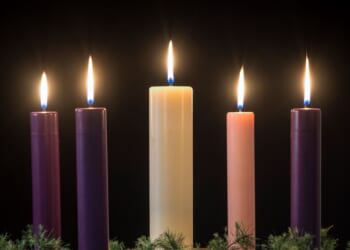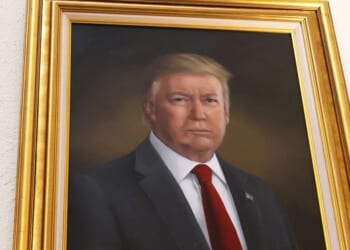Bishops’ decisions on LLF process: debate continues
From Mr Christopher Townsend
Madam, — Canon Simon Butler (Comment, 24 October) has written with customary panache in claiming that clergy are — in his opinion — free within their ministerial discretion to use “stand-alone services” of blessing. In support of his view, he says: “I understand that the legal and theological advice that the House [of Bishops] has recently received says nothing that would contradict this view.” So, it appears that he has not read the advice for himself to weigh the significance of any problems and difficulties that it raises; neither, of course, have we been able to do so.
This is symptomatic of the approach that has proved so damaging throughout the Living in Love and Faith (LLF) debates in the General Synod. Debates have been held, opinions expressed, and motions carried in the absence of adequate legal and theological advice. In February 2023, the debates in the Synod were launched with a fundamentally flawed memo from the Legal Office claiming there was “a good case” that “civil marriage” and “Holy Matrimony” were “now distinct” institutions: a view later abandoned as simply untenable.
Astonishingly, it was only just before February 2025, after we had spent two years in difficult debates, that any theological advice became available to the Synod on the central issue, namely the Church of England’s doctrine of marriage, and, at the time of writing, we await the release of the more recent advice.
Frankly, we have not been serious about our doctrine and the associated legal questions, and this cavalier approach has come home to roost.
CHRISTOPHER TOWNSEND
51 Roseford Road
Cambridge CB4 2HA
From Mr Richard Brown
Madam, — I have every sympathy for Canon Simon Butler as he laments the meagre pickings from the LLF process. Promises, implicit or explicit, from bishops and others about where the process should have ended have proved to be premature. Inside knowledge (of which Canon Butler appears to have a good deal) is a wonderful thing sometimes, but when the Synod disagrees, as it did in February 2023, when the phrase “shall be neither contrary to, nor indicative of any departure from, the doctrine of the Church of England in any essential matter” was emphasised, then those of us in the Synod who aren’t quite as much in the know as Canon Butler should be taken notice of.
And it really is not very difficult to see how the construction of a same-sex marriage from the pages of the Prayers of Love and Faith (PLF) was both easy and in defiance of Canon B30, something that was plain to almost everyone apart from the House of Bishops when the PLFs were first published. Is a course of action that directly contravenes a canon of the Church of England not “an essential matter”? The laity whom I represent on the Synod have remained unimpressed.
Beware of insulting the intelligence of the paying membership of the Church of England. Without them, there will be no Church at all.
RICHARD BROWN
General Synod representative for Chelmsford diocese
19 Winsford Gardens
Westcliff on Sea
Essex SS0 0DR
From the Revd Christopher Blunt
Madam, — We all know that a good argument sells newspapers. So you chose to publish Canon Simon Butler’s article giving the proverbial two-fingered salute to his Ordinary, the House of Bishops, church discipline, and about 45 per cent of the C of E (based on voting records in the General Synod).
I asked my neighbouring parish to remove their Pride progress flag because (a) it was hugely divisive and (b) it represented radical individualism rather than the gospel of Jesus. They disagreed with (b) but gracefully obliged, on the basis of (a). Could you consider the same when it comes to the articles you publish and the images that you put with them?
CHRISTOPHER BLUNT
General Synod representative for Chester diocese
St Mary’s Rectory
Gorsey Mount Street
Stockport SK1 4DU
From Canon Nicholas Cranfield
Madam, — My attention has been drawn to the personal response of the Dean of Canterbury, the Very Revd David Monteith, elsewhere (viamedia.news) after the announcement last week that the House of Bishops had effectively called time on LLF.
May I suggest that all deans and other senior clergy who are currently in long-term, stable same-sex relationships and are civilly partnered agree a date when all of them exercise their civil rights to get married?
The canonically illegal women’s ordination in America on 29 July 1974 of the Philadelphia Eleven was an act of civil disobedience which brought change to the Episcopal Church in the United States and to the wider Anglican Communion.
As other Provinces across that much touted Communion allow same-sex marriage in church, the fiat of bishops in two further Provinces (Canterbury and York) should not be allowed to perpetuate this discrimination that, Dean Monteith rightly suggests, causes pain and engenders hypocrisy.
NICHOLAS W. S. CRANFIELD
10 Duke Humphrey Road
London SE3 0TY
From Canon Andrew Bryant
Madam, — In response to the House of Bishops’ decisions concerning the future of Living in Love and Faith, you report the Bishop of St Edmundsbury & Ipswich, Dr Joanne Grenfell, as saying that the “price” of further change was “too high” (News, 24 October).
Dr Grenfell may, or may not, be correct in this assertion, but it is important to acknowledge the price continuing to be paid by members of the LGBTQ+ community. They routinely feel excluded, rejected, de-valued, and unacknowledged, as their God-given identity becomes a matter of debate and disagreement. For too many, the price has already proved too high, and they have left the Church. Others will never join the Church, knowing it is not a place where they will find acceptance.
The decision by the House of Bishops needs to be acknowledged as a costly act. When will the House of Bishops recognise that the price is too high for LGBTQ+ people to continue to carry?
ANDREW BRYANT
4 The Crescent
Salisbury SP2 8DF
From the Revd George Day
Madam, — The recent decision by the Bishops on LLF set me thinking about the parable of the good Samaritan, and the priest and Levite, religious men, whose faith should move them to care and compassion. But, in fact, it seems the opposite happens; it is their religion that stops them from helping the wounded man on the road.
Today, sadly, our bishops seem to be passing by on the other side, ignoring gay people who bear such hurts. They have given in to the conservative pressure that uses faith based on a very questionable interpretation of a few Bible texts to stop the Church of England giving what is needed. Are they not the priest and Levite of today?
It is, of course, important to give freedom of conscience. There is rightly no suggestion that offering the Prayers of Love and Faith should be a requirement. But it surely is high time for the C of E not to pass by, ignoring the need, but to act as neighbour by swiftly moving the whole LLF process forward.
GEORGE DAY
5 Abbey Grange Close, Buckfast
Buckfastleigh TQ11 0EU
From the Revd Ian Hill
Madam, — Imagine my surprise that the safeguarding lead bishop for the C of E, Dr Joanne Grenfell, has supported pausing the process of blessing same-sex marriages because the “price” of further changes was “too high”. If others are allowed to bless same sex marriages, opponents have threatened to leave. They have already withdrawn their money, told us that our opinions are wrong, unacceptable, and heretical, and told us that we need to do what they want, or there will be consequences. In a marriage, this would be called control and coercion, and it would be considered abusive.
I would have expected the safeguarding lead to stand up to this behaviour and call it out for what it is. I am saddened and disappointed that the levels of coercive behaviour and abuse in the Church have become so normalised that we have become conditioned to giving in to it.
We have been gaslit for far too long. The real risk and cost to the Church comes from our being seen as homophobic, transphobic, and toxic. Our mission at St Mary’s as a fully inclusive church is heavily tarnished by this, and it is a huge barrier to many people: they have no interest in a god of hate.
“God is love. Whoever lives in love lives in God, and God in them.” When this becomes once again the gospel message that people hear about Jesus, our mission will be transformed.
IAN HILL
Parish Office, St Mary’s Church
Church Walk, Hinckley
Leicestershire LE10 1DW
From Mr David M. Brooke
Madam, — Canon Roger Arguile (Letters, 24 October) is wrong when he states that “none of the marriage liturgies of the Church can encompass the idea of a union of those who cannot procreate.” The marriage service in the Book of Common Prayer contains a prayer regarding procreation, but makes provision for this to be omitted “where the Woman is past child-bearing”.
If procreation is to be treated as a condition for marriage, then this would exclude men and women who are infertile and couples who choose not to have children, as well as women who are “past child-bearing”.
DAVID M. BROOKE
2 York Grove
Mirfield WF14 9RS
Time for dioceses and parishes to switch banks?
From Judith Russenberger
Madam, — “No major banks have yet committed to stop funding new oil, gas and coal.” So ran a headline in The Guardian on Wednesday of last week.
In June 2023, the Church Commissioners announced their decision to exclude all fossil-fuel holdings from the endowment fund that they manage on behalf of the Church of England, with the aim of aligning its portfolio to companies aligned with a 1.5°C pathway.
Two years on, and scientists tell us we have reached the first tipping point, the irreversible bleaching of coral reefs; that carbon emissions have yet to peak (only if they peak this year do we have a chance of limiting the temperature rise to 1.5°C); and fossil-fuel production continues to rise. The climate crisis has not abated.
Disturbingly — but not to the surprise of many observers — research disclosed that no major banks had yet made a commitment to stopping funding new oil, gas, and coal. Banks such as Barclays, HSBC, Santander, NatWest, and Lloyds all continue to stream billions of pounds into fossil-fuel projects. The research was carried out by TPI Global Climate Transition Centre (an initiative set up with the support of the Church of England Pensions Board).
In the light of the continued support of the big five banks for the fossil-fuel industry and the Church’s ambition of supporting the 1.5°C pathway, surely it is now time for all church bodies to switch to an ethical bank that will make an impact for good in the world. The Just Money Movement has plenty of resource materials for both individuals and parishes. For larger bodies such as dioceses, where there may be a financial cost involved in finding the best match, can we look to the Church Commissioners to provide finance to speed the process?
JUDITH RUSSENBERGER
84 Temple Sheen Road
London SW14 7RR
No need to downplay actions of the State of Israel
From the Revd Patrick Morrow
Madam, — Rabbi Cohn-Sherbok’s article (Comment, 17 October) has many resonances. Unfortunately, all of them are bad. He goes so far as to claim: “Jew-hatred today is based on deeply held moral objections to Israeli policy.” It seems that the actions of some Jews (admittedly prominent and powerful) are so heinous that the guilt spills over and becomes properly collective. What else can a “moral” person do, but blame all Jews?
Christians have historically taken such a line, and it has not served us well. Already in the second century, Melito of Sardis, poet of deicide, was arguing that Jews were responsible for the death of Christ, of God the Son. That’s all Jews, throughout space and time. The consequences have been disastrous.
It is not necessary to defend or downplay the actions of the current government of the State of Israel, as the Revd Dr Ian Paul does (Letters, 24 October), to find the original article repellent. I condemn the actions of the Israeli government in Gaza. But I do not suppose they can ever become a reason for wider — still less, universal — “Jew-hate”. That is the opposite of a moral response. That this needs saying is, frankly, stunningly alarming.
PATRICK MORROW
Address supplied
The Editor reserves the right to edit letters








